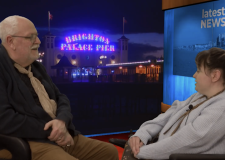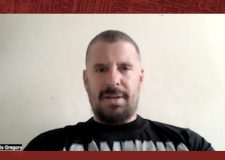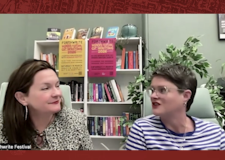Brighton hospital closes Urgent Care Centre
The Urgent Care Centre at the Royal Sussex County Hospital in Brighton has been closed.
The centre closed last Sunday (5 August) after health chiefs decided to pilot a new method of tackling the growing number of patients turning up at Accident and Emergency (A&E).
Many of them do not need emergency care but are going to A&E rather than seeing their GP or a pharmacist.
Now Brighton and Sussex University Hospitals NHS Trust, which runs the Royal Sussex, has posted a consultant and emergency nurse practitioner (ENP) to triage arrivals.
Those needing emergency care will be seen in A&E while those who do not need emergency care will be given advice about where to find suitable treatment.
Nikki Luffingham, the trust’s chief operating officer, said: “We are providing a consultant and an ENP at the front door between the hours of 11am and 7pm for six days a week – Monday to Saturday – and that covers all the peak times.
“The patients come in and are triaged at the point of entry as they always have been.”
She said that those who do not need emergency care were likely to be advised to
- contact their GP
- see a pharmacist or
- go to the walk-in centre in Queen’s Road, just outside Brighton Station
About 10 to 15 patients a day are currently being redirected since the change.
Previously patients at the Urgent Care Centre were seen by one of the team of emergency nurse practitioners and GPs.
The big team has been replaced with the hospital consultant and an ENP as one of a package of measures drawn up by the trust and other NHS organisations.
They are trying to reduce the rising number of patients using the expensive A&E facilities at the Royal Sussex, the Royal Alexandra Children’s Hospital and the Sussex Eye Hospital.
The total number turning up is currently about 350 a day although the numbers soar at times.
And health chiefs hope that by redirecting those who do not need A&E they can reduce those numbers and improve waiting times and treatment for those who genuinely need emergency care.
The aim is to ensure patients are treated by the right person in the right place at the right time while saving money.
The trust is working with Brighton and Hove City Council social services staff – and those from the county councils – to ensure the more timely discharge of more patients too.
Paramedics working for South East Coast Ambulance Service are also being asked to consider whether so many patients need to come to hospital.
And Sussex Partnerships NHS Foundation Trust is being asked to play its part in helping to reduce emergency admissions among mental health patients.
The Brighton and Hove Clinical Commissioning Group – newly created by the coalition government’s health reforms – has been considering the role played by GPs and nursing support.
Working with the primary care trust – now part of NHS Sussex – it is also encouraging pharmacists to broaden their role.
Nikki Luffingham said: “It’s up to us to only admit the patients that need to be admitted.”
Among others, they are likely to continue to include people who have
- a life-threatening injury or illness
- a heart attack
- traumatic head, neck or back pain or injuries
- heavy bleeding
- sudden shortness of breath
- lost consciousness





















